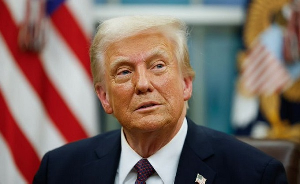The notion of development is not easy to define because there are so many parameters and indices one will have to consider when defining development. Generally, development is both qualitative and quantitative increase in the well being of people in a country or area. Development must bring an improvement in the lives of people especially in the area of health, nutrition, portable water, good roads, education, good governance and democracy inter alia. From time immemorial, women have contributed their quota to the development of Ghana. Despite this, they have often been regarded as second class citizens and have their contributions undermined.
However, men and women have the same capabilities to exhibit in varied forms. As a result, the talk about of one sex being superior to the other should be a subject of no controversy. But then, if some people want us to believe that men are superior to women, I would vehemently oppose such a stand.
It is highly unacceptable and against human dignity to say or even think that women are inferior to men because women are the child bearers and counselors of their children from infancy and it is abundantly clear that in every stormy home, it is the woman who cools tempers. Every superior person is supposed to be a good judge, slow to anger; discipline and above all live an exemplary live worthy of emulation. With all apologies to men, I must be frank to point out that most men lack many of these qualities.
Women’s contributions to the socio-economic and political development of Ghana cannot be over-emphasized. They have played and continue to play leading roles in the development of our dear nation Ghana. In the area of public service (Politics inclusive), mention can be made of the Chief Justice, the speaker of Parliament, the Acting Inspector General of Police, the Acting Commissioner on Human Rights and Administrative Justice (CHRAJ), the Attorney General and Minister of Justice, the Government Statistician among others who are all distinguished women. One does not need glass eyes to see their contributions to national development. It is in the right direction that the President is set to appoint 40% of women in top government positions. This will not only empower women but will help reduce corruption in the country because women are generally less corrupt. Some people may have different view.
Never in any part of the globe can you find a man without a woman. The saying that behind every successful man, there is a woman has given way to; beside every successful man there is a woman. This is as a result of their invaluable contributions and support to development. In religious activities for instance, we have Rev. sisters just as we have Rev. brothers. We have women pastors and evangelists. We have women in the military, engineering and other areas of human endeavour. This goes to strengthen the fact that men and women are equal in all spheres of life. In this regard, one will be committing a fallacy of ignorantio elenchi to argue that women are inferior to men.
According to a study conducted by Bukh (1970), in Ghana 65% of women are solely responsible for their children’s daily nutrition. Women form 58% of rural population, and are the heads of 40% of the households. Ghanaian women have traditionally occupied key positions along side men in the production of goods and services for subsistence and for the market, but as happens in most countries, the actual contributions that women make to the economy have been underestimated or missing from national accounts. A major source of the problem lies in the tendency to subsume home production activities under leisure, as is the convention in neoclassical labour economics (Aryeetey et al, 2000).
According to Ms. Soukenya ba of Senegal, if you want to develop Africa you must develop the leadership of African women. Women have demonstrated that they are capable and when given the opportunity, they will perform to the admiration of all. An example is Yaa Asantewaa of the Ashanti Kingdom who led her people to a war against British oppression and rule.
In order to empower women, education should be made a topmost Priority. The girl-child should be encouraged to go to school and stay. Dr. Kwagyir Aggrey said it all that, if you educate a man, you educate an individual. But if you educate a woman, you educate a whole nation.
The government as well as other agents of development should develop programmes through rural participatory appraisal that will involve women in decision-making on issues that affect them.
It is clear from the above that, women in Ghana and elsewhere have been contributing their quota to development. Their best however have not been recognized. It is high time men considered women to be partners in development and not regard them as inferior. In order to achieve this, all stakeholders must be put on board including women themselves so that their views and opinions would be sought and added to the development agenda of the country, that is if we have one. I support that some quota of seats should be reserved in parliament for women as contained in the women manifesto so that they can be involved in the decision-making process of government. Their present representation in parliament is nothing to write home about.
Francis Xavier Tuokuu
National Service Personnel University of Ghana P.O. Box LG 59 Legon – Accra. (mactuokuu@yahoo.com).
Opinions of Wednesday, 1 April 2009
Columnist: Tuokuu, Francis Xavier
The Role Of Women In Ghana’s Development
Entertainment













